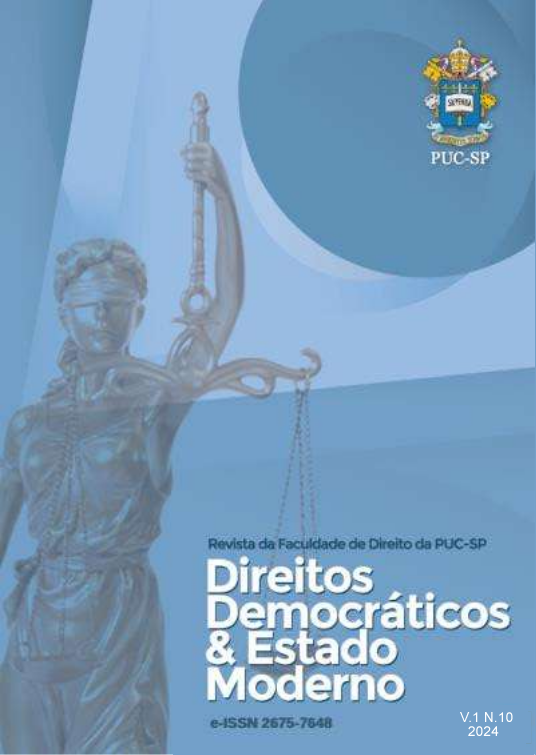Resolution of south african land disputes and the importance of the Ubuntu principiological perspective in public policies
DOI:
https://doi.org/10.23925/ddem.v.1.n.10.65172Keywords:
Ubuntu, Land disputes, Conflict resolution, ApartheidAbstract
The purpose of this article is to investigate perceptions regarding the role and effectiveness of the Ubuntu concept in resolving conflicts related to land property rights, using the Vuwani-Malamulele conflict and the Land Restitution Project in South Africa as a case study. The research has found that despite the continued belief of traditional leaders in the relevance of Ubuntu in resolving conflicts of this nature, the principles, values, and ideals of Ubuntu have not been fully applied due to the persistence of modern-colonial values and ideals imposed by the apartheid system. This is exploratory research of a qualitative nature, utilizing bibliographic resources and a dialectical method, where the author delves into potential alternatives for resolving South African land disputes from a Ubuntu principled perspective to promote equality and non-discrimination, aiming to foster justice, equality, and harmony in relation to land and natural resources.
References
BIKO, Steve. Escreve o que Eu Quero. Tradução Grupo Solidário São Domingos. São Paulo: Ática, 1990.
CONSTITUTION OF THE REPUBLIC OF SOUTH AFRICA. Disponível em: http://www.gov.za/documents/constitution/1996/a108-96.pdf. Acesso em 11 out 2023.
ND NATIONAL CONFERENCE: NATIONAL EXECUTIVE COMMITTEE AS ELECTED» (em inglês). African National Congress. 20 de dezembro de 2007.
EZE, Michael Onyebuchi. The Philosophy of Ubuntu and Ubuntu as Philosophy, Lexington Books, 2017.
GEERTZ, Clifford. O mundo em pedaços: cultura e política no fim do século. In: Nova luz sobre a antropologia. 3.ed. Rio de Janeiro: Jorge Zahar, 2011.
HOGEMANN, Edna Raquel, OLIVEIRA, Susane V. Constitucionalismo Tranformador E O Ubuntu Sul-Africano Nas Decisões Envolvendo Direitos Humanos. In: Revista de Direito UNIGRANRIO_v.9_n.1.01. 2006.
HOGEMANN, Edna Raquel. Direitos Humanos e Filosofia Ubuntu. Rio de Janeiro: Lumen Juris, 2017.
HONNETH, Axel. Luta por reconhecimento: a gramática moral dos conflitos sociais. São Paulo:34, 2003.
MARSHALL, T. H. Cidadania, classe social e status. Rio de Janeiro: Zahar, 1967.
MAHAYE, N. “Mgogi” E., & HOGEMANN, E. R. (2023). A filosofia do Ubuntu na educação. Revista Direito Das Políticas Públicas, 3(2). Disponível em: https://seer.unirio.br/rdpp/article/view/12943. Acesso em 15 out 2023.
MAPADIMENG, S. Ubuntu/botho culture and socio-economic development in post-apartheid South Africa: A theoretical analysis. Rhodes University 2009.
MENKITI, A. Person and Community in African traditional. Rhodes University, 1984.
MUTUA, Makau. Human Rights A Political and Cultural Critique, EUA: University of Pennsylvania Press, 2008.
MOKGORO, Y. (1998) Ubuntu and the law in South Africa, Potchefstroom Electronic Law Journal, 1(1), 15–26.
NUSSBAUM, Barbara. Ubuntu: reflection of a South African on our common humanity.Reflections, the Society for Organizational Learning and the Massachusetts Institute of Technology, New York, v. 4, n. 4, 2003.
O GLOBO. África do Sul dá passo para expropriar terras dadas a colonos brancos Disponível em; https://oglobo.globo.com/mundo/africa-do-sul-da-passo-para-expropriar-terras-dadas-colonos-brancos-22438390.
RADEBE, N. Zodva. Singabantu bendawo: understanding the concept of land from the perspective of Ubuntu. Anthropology and Archaeology, University of South Africa, Pretoria, South Africa. Disponível em: https://www.tandfonline.com/doi/abs/10.1080/23323256.2019.1670086. Acesso em 10 out 2023.
RAMOSE, M. African philosophy through Ubuntu (Harare, Mond Books), 1999.
RAMOSE, Mogobe B. A ética do Ubuntu. Tradução para uso didático de: RAMOSE, Mogobe B. The ethics of Ubuntu. In: COETZEE, Peter H.; ROUX, Abraham P.J. (eds). The African Philosophy Reader. New York: Routledge, 2002, p. 324-330,
RISIMATI, Tlharihani M. e RANKOANA, Sejabaledi A. The Perceptions of the Traditional Leaders on the Role of Ubuntu in Conflict Resolution: The Case of Malamulele and Vuwani Conflict in Limpopo Province, South Africa, in: International Journal of Social Science Research and Review, Volume 6, Issue 10 October, 2023, Pages:204-217
SWANSON, Dalene. Doing Democracy. Disponível em: http//doingdemocracy.ning.com/profile/DaleneSwanson. Acesso em 12 out 2023.
THWALA, Wellington Didibhuku. A Experiência Sul-africana de Reforma Agrária. In: MARTINS, Monica Dias (org.). O Banco Mundial e a Terra: ofensiva e resistência na América Latina, África e Ásia. São Paulo: Viramundo, 2020. p. 145-159.
TUTU, Desmond. Reconciliation: The Ubuntu Theology of Desmond Tutu, Pilgrim Press, 1991.
WEST, Andrew. Ubuntu and Business Ethics: Problems, Perspectives and Prospects J Bus Ethics 121, 47–61 (2014). https://doi.org/10.1007/s10551-013-1669-3.
Downloads
Published
How to Cite
Issue
Section
License
Copyright (c) 2024 Democratic Rights & Modern State

This work is licensed under a Creative Commons Attribution 4.0 International License.
This work is licensed under a License Creative Commons Atribuição 4.0 Internacional.
The authors grant the journal all copyrights relating to the published works. The concepts issued in signed articles are the absolute and exclusive responsibility of their authors.
DD&EM Magazine - ISSN 2675-7648

















